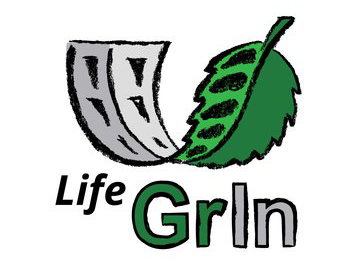Results

SALAM-MED
SALAM-MED identifies, tests, and validates nature-based practical solutions to enhance the resilience of threatened socio-ecological systems in Mediterranean drylands or to restore degraded ecosystems in arid and hyper-arid regions. The project explores the following solutions:
- Adaptive vegetation management,
- Integrated olive grove management,
- Innovative technologies to improve grazing management and preserve ecosystem services in degraded rangelands within agroforestry systems,
- Water harvesting and groundwater retention technologies,
- Microbial consortia for improved productivity in drylands,
- Managed aquifer recharge
- Wadi basin water harvesting

ΒΙΟΑΣΤΥ
The project aims to improve citizens’ quality of life and increase resilience, by slowing down and ultimately reversing urban climate change.
Its specific objectives are:
1) The analysis of thermal stress under specific climate scenarios at the city level.
2) The improvement of the microclimate and urban environment through targeted bioclimatic design interventions.
3) The application of this methodology. It can also extend to buildings, resulting in reduced demand for electricity and fuel.
4) The pilot implementation of the BIOASTY methodology in selected areas. This will serve as a model for improving microclimatic conditions in other municipalities and regions.

OliveAlarm
The project aims to support the adaptation of olive cultivation to climate change by monitoring the evolution of key climate parameters and derived indicators that affect olive production, as well as by developing an early warning system for potential risks associated with climatic conditions such as disease and weed infestations.

GenTree
Objectives:
- Τhe aim of the GenTree Project is the provision of improved knowledge, methods, and tools for the management and sustainable use of forest genetic resources in Europe, in light of the threats posed by climate change.
- Project’s research focuses on innovation, through the design of new strategies for the conservation of forest genetic resources in European forests, the expansion of the genetic resources used in European forest tree breeding programs, and the integration of conservation and improvement strategies to create a new framework for the development of an adaptive forest management system.
- Research focused on the 12 most important forest tree species in Europe, based on economic, ecological, and social criteria.

ACORN
Objectives:
- Detect genomic patterns of drought adaptation at local and continental scales
- Investigate physiological and morphological traits related to drought resistance and identify their genetic background
- Examine if the movement of forest reproductive material (FRM) at local/continental scale is expected to enhance adaptability of future forests
- Identify optimal FRM transfer strategies to maximize benefits and minimize risks

LIFE GrIn
LIFE GrIn supports the idea of urban integration by redefining urban green spaces not as isolated entities, but as integral components of the urban ecosystem, each with its own unique functions. Through this approach, urban greenery is utilized as an invaluable resource for cities to adapt to climate change and mitigate its impacts. The goal is the integration of the climate governance into the management of urban green infrastructure at local level, creating a comprehensive and sustainable policy.



.svg)
